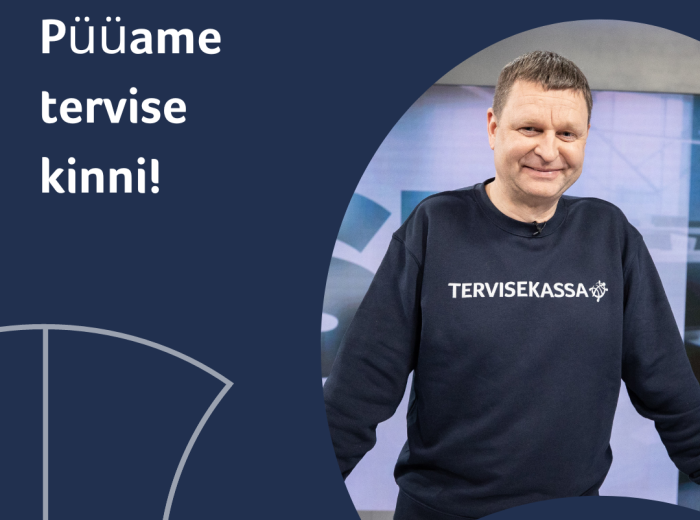The change of the Estonian name of the Health Insurance Fund from Haigekassa to Tervisekassa is a necessary change of direction in our health care

In recent years, the Health Insurance Fund has funnelled more and more funds in the prevention of diseases and promotion of people’s health. For example, cancer screening, monitoring of chronic diseases, health care at school and examinations for children and their parents have been expanded, free flu vaccines have been given out, and emphasis has been placed on the development of integrated care pathways and e-solutions.
“The name change of the Health Insurance Fund has raised questions and caused some confusion for people, but we believe that it is a fundamental and necessary change in Estonian health care. Changing the name is related to the goal of emphasising the end result of our activities – maintaining and restoring our health. The Health Insurance Fund is not a passive payer of treatment invoices, but instead supports the provision of health services and paying for them in a comprehensive, person-centred way, valuing the health outcome,” said Rain Laane, Head of the Health Insurance Fund.
People’s health outcomes are affected by the availability of good medical care according to the needs of society as well as integrated treatment where the treatment process is smooth for the person and transitions from one health care facility to another are organised in good cooperation between institutions and specialties. According to Laane, over the last five years, the Health Insurance Fund has acquired a number of tasks related to public health care, which the new name also better takes into account. These functions include, for example, procurement of pharmaceuticals necessary for the control of infectious diseases, compensation for vaccine damages, and we have also expanded, for example, prevention and treatment services for addiction disorders.
“In summary, we are focusing increasingly on how to ensure that people stay in good health longer, feel good and need less attention of physicians or do so in increasingly later years. At the same time, work continues to find solutions to the resource shortages that already exist in health care. This is so that in the future it would be possible to ensure high quality and timely medical care for all people in Estonia financed through common tax funds. But as a society, we also have to realise that responsibility for health does not lie only with the physician or the Health Insurance Fund but starts with each of us. We have the freedom to consume, eat and work, but also the responsibility to do all that in such a way that our health remains good even in decades to come,” Laane said.
Over the years, there has been an increased emphasis on the early detection of health problems and prevention of health damage. The Estonian name of the Health Insurance Fund – Tervisekassa – was already under considering during the establishment of the health insurance system in 1990–1991, but back then it was decided in favour of the name “haigekassa”, which had been historically used earlier. 30 years later, we will adopt a name that emphasises the results of the work of the institution,” he added.
